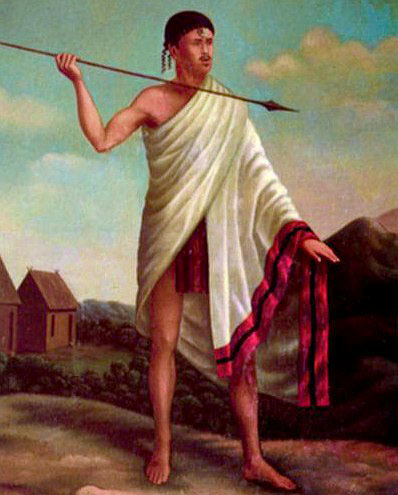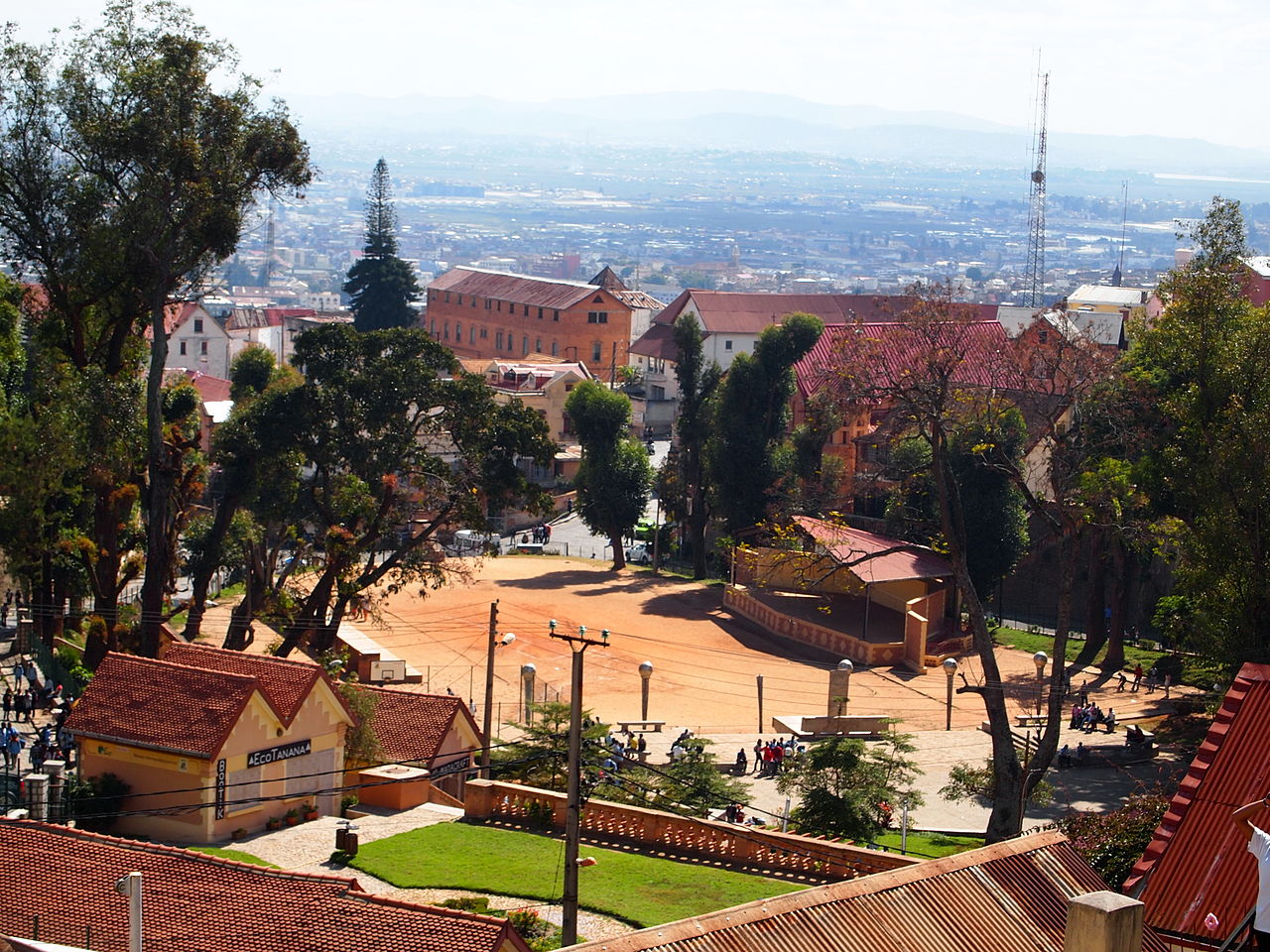 |
| By 1817, Toamasina (Tamatave) was the busiest port on the east coast of Madagascar |
Radama's last promise to his father, that he would extend Imerina to the sea, was finally met in 1817, when Radama conquered the city of Toamasina. The city had long been under the protection of European powers, who leveraged their maritime power to protect the government of Jean Rene, a Malagasy merchant who governed the city. But in 1817, Radama made his own agreement with the British. In a treaty signed between the two states, Radama abolished Merina involvement in the slave trade in exchange for a large sum of cash, military equipment, and the opportunity to send Malagasy youth abroad. With a new ally on the island, the British abandoned Jean Rene and gave Radama the go ahead to conquer the coastal city.
 |
| Workers unload cargo from an outrigger canoe in Toamasina, circa 1880. |
Toamasina gave Imerina its first major port in its history, as well as a direct line of communication with the outside world.
 |
| Radama (on the upper left horse) inspects an army |
Using resources acquired from his deal with the British, Radama assembled a modern army equipped with the latest firearms, artillery, and even horses, an otherwise unknown sight on Madagascar. The new Merina army proved unstoppable, with only the former hegemons of Madagascar, the Sakalava kingdoms, putting up successful long term resistance during Radama's reign.
 |
| Map of Radama's Conquests of Madagascar |
 |
The king's palace: Tranovola or the Silver House
|
In addition to using new military technologies acquired from foreign trade, Radama also sought to promote literacy in foreign writing systems, inviting British missionaries into Madagascar to teach the Latin script. He additionally mixed Malagasy and western architecture when commissioning a new palace. The Tranovola, Radama's new palace, features western elements like the double floor veranda, as well as Malagasy elements like house horns and an interior andry, or singular central pillar holding up a sloped roof.
Radama's rule was a critical period of Malagasy history. His conquests represented the first steps in producing a united kingdom of Madagascar, while his importation of new educational institutions rapidly grew literacy. However, his reign also brought new economic problems. Namely, the abolition of the slave trade had a far more profound impact on his kingdom's economy than he anticipated. To make up for lost revenue, Radama sought to transform Madagascar into Africa's first industrial power. That saga will be the focus of our next episode.























